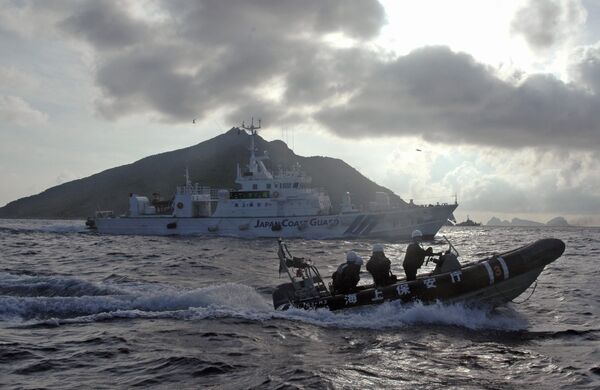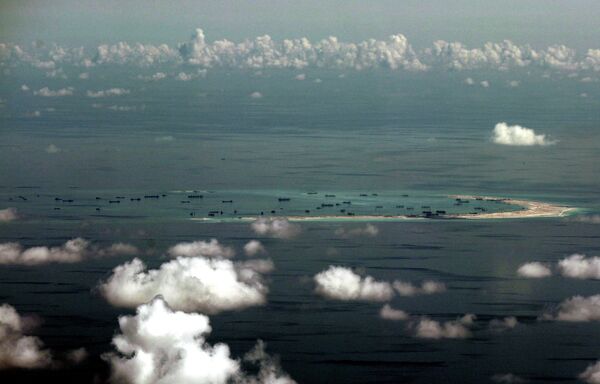Washington's so-called "freedom of navigation" operations and Beijing's reclamation efforts in the South China Sea attracts the bulk of media attention these days. But last week it was the East China Sea that made headlines when Russian and Chinese naval ships sailed past the islands that Beijing refers to as Diaoyu and Japan calls Senkaku. The uninhabited territory is also claimed by Taiwan in a dispute that goes back decades.

The business daily maintained that arbitration is key to resolving the territorial disputes. Moscow is well-positioned to assume this role, while the US views every region in terms of its national interests and is thus biased.
"The problem is that instead of creating or at least backing the establishment of a mediation court, the US is trying to 'contain' China. Since the Chinese economy is approximately as large as the American, Washington views Beijing as its primary rival. It follows then that in any territorial disputes involving China and its neighbors, Washington has always pursued a simple strategy of backing Beijing's opponents," the media outlet explained.
Moreover, US policymakers do not seem to understand all the intricacies of Asian geopolitics and how to address challenges in this region. Any territorial dispute could only be resolved if every party is equally respected.

This is why Washington and its allies have turned the Middle East and North Africa into "a permanent war zone," the daily observed. If these countries use the same approach to conflict resolution in Asia, they could set the region on fire.
For its part, Russia pursues goals opposite to those of the US when it comes to Asia.
"We do not need to contain anyone. Our task focuses on mutually beneficial cooperation with China, Japan, Vietnam, both Koreas and other countries in the Asia-Pacific region. At the same time we have a territorial dispute with Japan. We resolved a similar dispute with China through a mutually beneficial settlement despite an armed conflict that took place" in 1969, the newspaper detailed.
In this context, Russia could create a third party arbitration court to resolve territorial disputes in Asia.



